How to choose the generator fuel type
- By BISON
Table of Contents
Chooseing the right generator for your needs is a crucial decision that requires thoughtful consideration of numerous factors. One of the most critical aspects to consider is the fuel type, as it has a direct impact on the generator’s efficiency, lifespan, and overall performance.
A little-known fact about generators is that some accept fuels other than diesel or gasoline. Even dual-fuel and tri-fuel generators enable multiple fuel types for backup power.
While each generator and associated fuel type has its advantages, a few quirks will ultimately affect a buyer’s decision when purchasing a generator. BISON aims to provide an in-depth understanding of different fuel types. The following list of generator fuel types can help you choose the right one that suits your needs
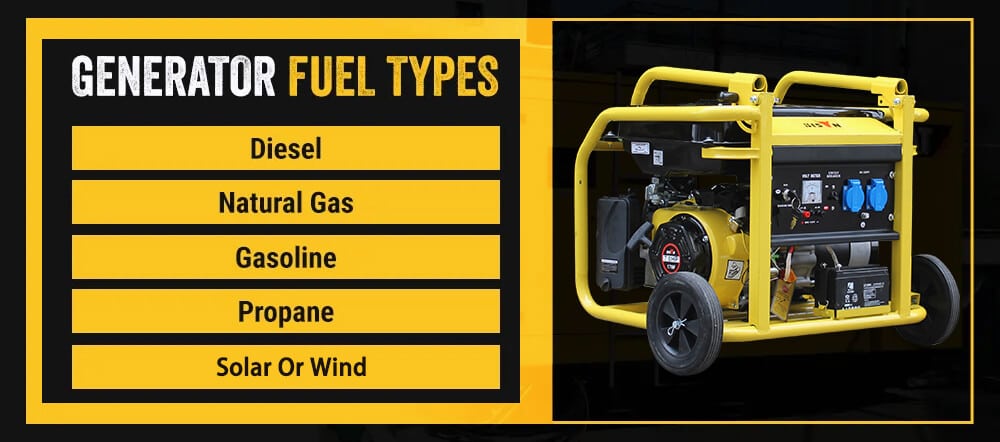
Generator types
Gasoline Generator
Gasoline is mainly used in portable residential generators, such as those sold at big hardware stores, because gasoline tends to have a shorter shelf life and flash point than some of its counterparts. This means, for example, that it can ignite at a lower temperature than diesel. While gasoline may work fine for residential generators that require less refueling, it’s not generally considered a viable fuel source for commercial and industrial applications.
Diesel generators
Diesel generators use diesel oil. Diesel generators are one of the most commonly used generators on the market due to their construction, versatility, and durability, enabling this type of generator to meet the various needs of several industries. Diesel generators can also be trailer mounted to provide functional portability, allowing users to tow the generator from site to site and different project sites, including those not yet connected to the utility grid or for disaster response and.
Natural gas generator
Natural gas generators are also popular. Natural gas is one of the cleanest burning fuel types because it produces the lowest emissions of all fuel types available for backup generators. A natural gas generator is connected to a gas line, eliminating the need to store fuel and allowing the generator to run longer without refueling.
However, natural gas generators require more routine inspections, repairs, and maintenance. This is because natural gas generators are spark ignited and have spark plugs. Extra care must be taken in repairing, maintaining, and, if necessary, replacing these plugs and any pipes or hoses carefully inspected to prevent possible fires.
Propane generator
The answer is still available if you plan to use a natural gas generator as a backup power solution but are not connected to the main gas line! Propane generators are natural gas generators converted with a conversion kit to accept and vent propane. This enables users to purchase large propane tanks to store the propane and connect the propane to the generator during a power outage. Propane provides flexibility for those using natural gas generators and allows fuel storage.
The downside is that propane is less efficient than diesel or gasoline. However, propane does not degrade, unlike diesel or gasoline, making it an ideal solution for those who occasionally use a generator. Like natural gas, propane burns cleanly and releases fewer harmful emissions into the atmosphere than other generator fuel options.
Solar energy or wind
These generators are made from renewable energy sources such as solar panels and wind turbines. The generator uses solar or wind to generate electricity, so it can be used even when there is no natural gas supply or access to gasoline or diesel. These generators can be powered by batteries or photovoltaic cells mounted on rooftop solar panels.
Comparison of different fuel types of generators
| Generator Type | Advantages | Disadvantages |
| Gasoline | – Readily available fuel – Suitable for residential and less frequent use | – Shorter shelf life – Can ignite at lower temperatures – Not suitable for commercial and industrial applications |
| Diesel | – Durable and versatile – Can be used in various industries – Fuel efficient – Can be portable (trailer mounted) | – Diesel fuel can degrade over time – Possible higher upfront costs |
| Natural Gas | – Clean burning (low emissions) – Can run longer without refueling – Unlimited fuel supply if connected to a gas line | – Requires more routine inspections and maintenance – Dependent on natural gas utility’s supply |
| Propane | – Can be stored for long periods (does not degrade) – Burns cleanly (lower emissions) – Provides flexibility for those using natural gas generators | – Less efficient than diesel or gasoline – Requires storage of large propane tanks |
| Solar/Wind | – Renewable energy source – Zero emissions | – Dependent on weather conditions – Power output may not be sufficient for all applications |
What generator fuel is the best?
Since each fuel type has advantages and disadvantages, deciding on the best fuel type for your generator depends largely on your situation and needs. Please consider the following factors to help determine which generator is best for your needs.
shelf life
Shelf life is the amount of time a fuel can be stored before it starts to degrade. This factor concerns how often you use your generator since you want to avoid the fuel going bad before it’s used. For example, when considering the shelf life of propane versus diesel generator fuel, both have a relatively long shelf life compared to gasoline.
storage
Consider if you can store that fuel type and have the storage space. For example, diesel is usually held in the fuel tank that feeds diesel generators, which means the more diesel available, the longer the diesel generator will run.
Except for natural gas, most types of generator fuel can be stored similarly. While this is usually fine in applications using natural gas generators, if the natural gas utility’s supply is cut off, the natural gas generator will not be able to operate.
delivery
Consider how to replenish fuel sources. Your fuel supply can be delivered, acquired, and shipped to your facility, depending on the fuel type. The gasoline tank of a portable residential generator can be filled at a local gas station, while a natural gas generator is connected to a natural gas line. For fuel types such as diesel, you may need the company to provide diesel and refill your tanks as needed.
Evaluating environmental impact
When considering a generator, natural gas, and propane are often favorable for evaluating the environmental angle. As we mentioned, these fuel types burn the cleanest compared to other generator options on the market.
Besides, renewable energy options like solar and wind power are the greenest choices. They produce zero emissions and greatly reduce your carbon footprint. However, they may not be feasible for all applications due to limitations in power output and dependency on weather conditions.
Assessing fuel costs and maintenance
The cost-effectiveness and maintenance demands of your generator should also factor into your decision. Each fuel type comes with its unique set of costs and maintenance needs.
For example, gasoline is readily available, it is subject to price volatility. Diesel generators may have higher upfront costs, they prove more economical in the long run due to their lower fuel consumption and infrequent maintenance needs.
Conclusion
In conclusion, the optimal fuel type for your generator depends on your specific needs. If you’re struggling to determine the right fuel type of generator, talking to a professional can help you narrow down your options.
BISON can provide personalized advice tailored to your specific situation, helping you make an informed decision. So, why wait? Start your journey to find the perfect generator today! Your ideal power solution is just a decision away.
FAQs about making your generator quiet
How much fuel does the generator use?
Generator’s fuel consumption can vary widely based on several factors, including the generator’s power output, load demand, efficiency, and fuel used. To determine your generator’s specific fuel consumption, you will need to refer to the manufacturer’s specifications for that particular model. Fuel consumption is usually given as a rate, such as gallons per hour (GPH), liters per hour (LPH), or cubic feet per hour (CFH).
For example, a small portable gasoline generator with an output of 1,000 watts may use about 0.1 to 0.2 gallons (0.38 to 0.76 liters) per hour at half load. On the other hand, a more substantial diesel generator with an output of 100 kW may consume about 10 to 15 gallons (38 to 57 liters) of diesel per hour at full load.
It is worth noting that these figures are general examples only, and actual fuel consumption may vary widely depending on the specific generator model and operating conditions. To determine the actual fuel consumption of a generator, it is best to consult the manufacturer’s specifications or contact the generator supplier for accurate information.
Should I purchase a gasoline generator or a diesel generator?
Diesel may still be more expensive than gasoline, but diesel fueled generators are also much more fuel efficient than gasoline generators, typically burning around 50% of the fuel at any given time. As a result, portable diesel generators are generally less expensive than gasoline generators over time.
Which is better for a generator, gasoline or LPG?
While a gasoline generator may be more cost-effective upfront, a LPG generator can save you money in the long run. You probably won’t use your generator daily, so you’ll store it away most of the time. LPG is a far superior fuel supply in terms of shelf life.
Are natural gas generators better than gasoline generators?
Gas generators are much better for the environment than traditional gasoline generators. Gas generators reduce carbon monoxide (CO) emissions by more than 90% and hydrocarbon (HC) emissions by more than 70% compared to gasoline generators.
Most Popular Posts
QUESTIONS?
CONTACT US TODAY.
buy?
Related Posts
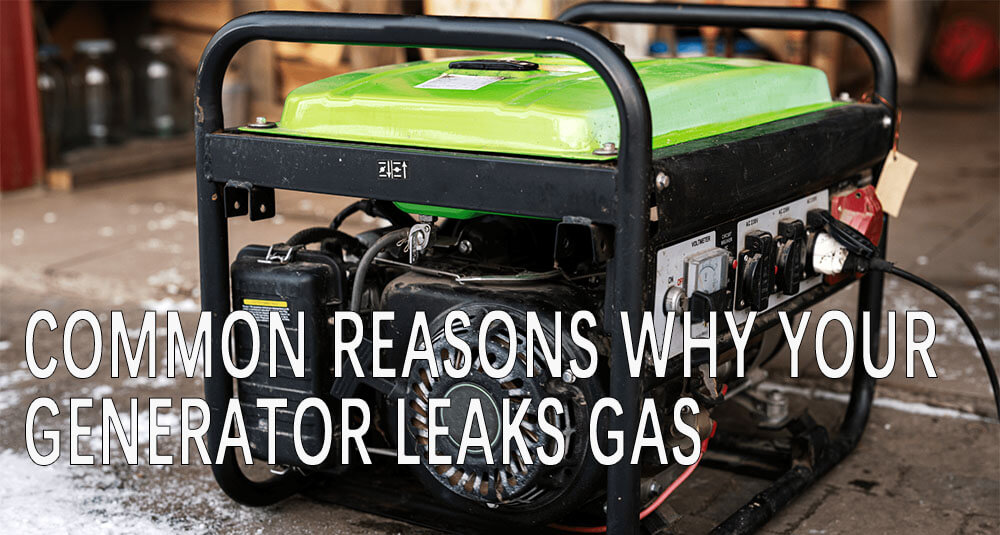
Common reasons why your generator leaks gasoline
In this guide, BISON covers common causes of gasoline leaks, warning signs to watch for, and how to fix the issue.
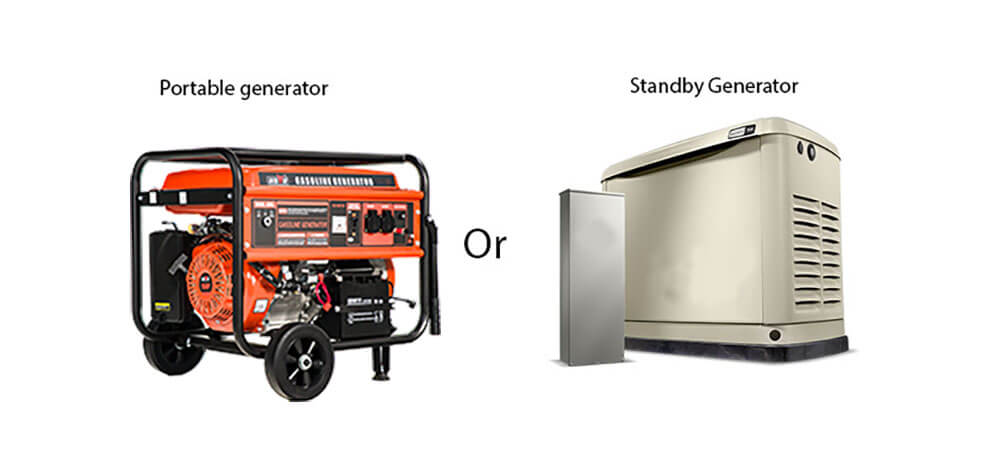
portable or standby generators: which one fits your needs?
This article by BISON breaks down the differences between portable and standby generators. By the end, you’ll find which one fits your needs best.

how to parallel generators: A comprehensive guide
BISON will explain what parallel generators mean and how they work together as a system. We will also focus on the advantages and reliability.

how long do generators run: what you need to know
BISON will dive into everything you need to know about how long a generator runs, helping you choose between generators with different run times.
.png)
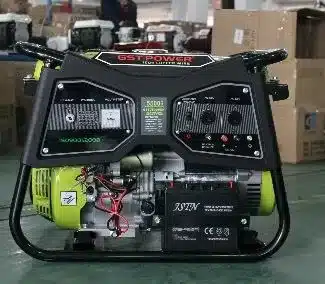
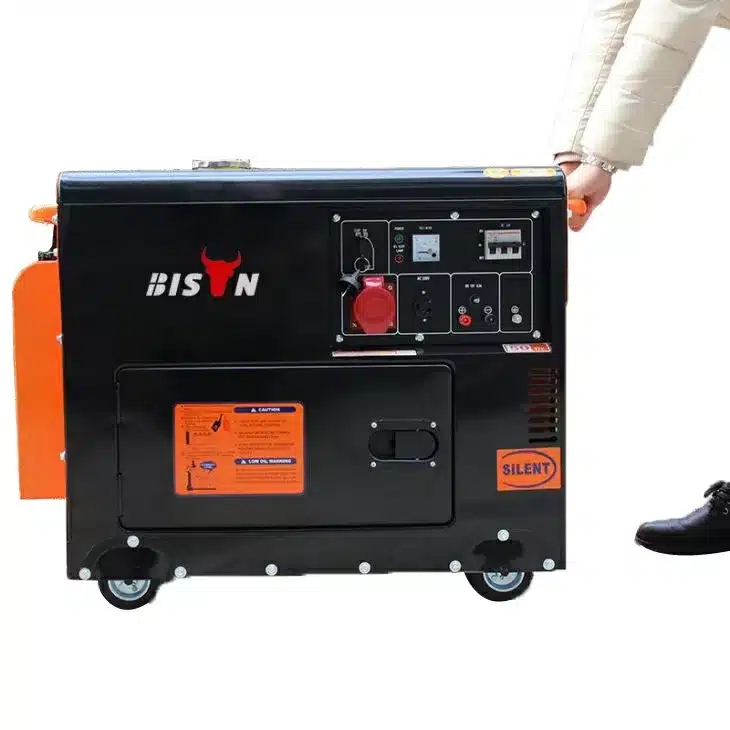
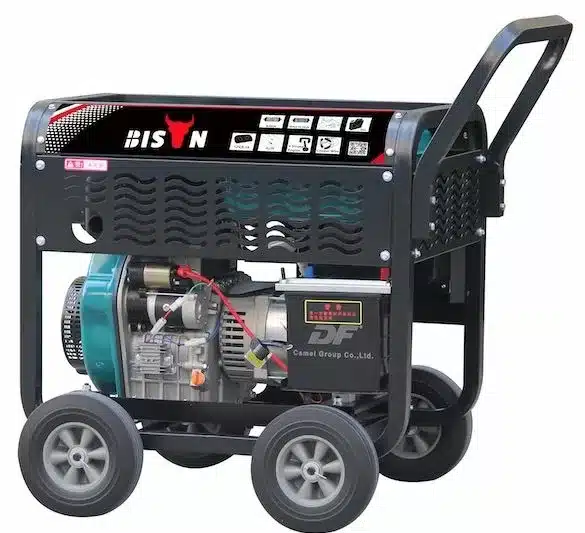
-qbpqbzxxvtguiuwezisu6wo6j1i29b4m1el1ir1u8o.png)

